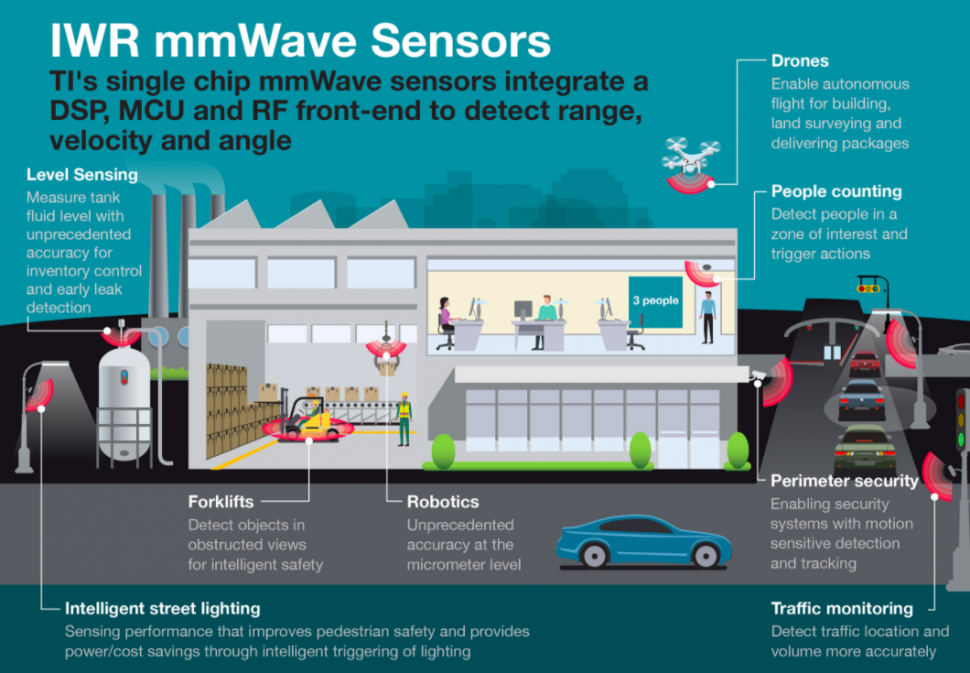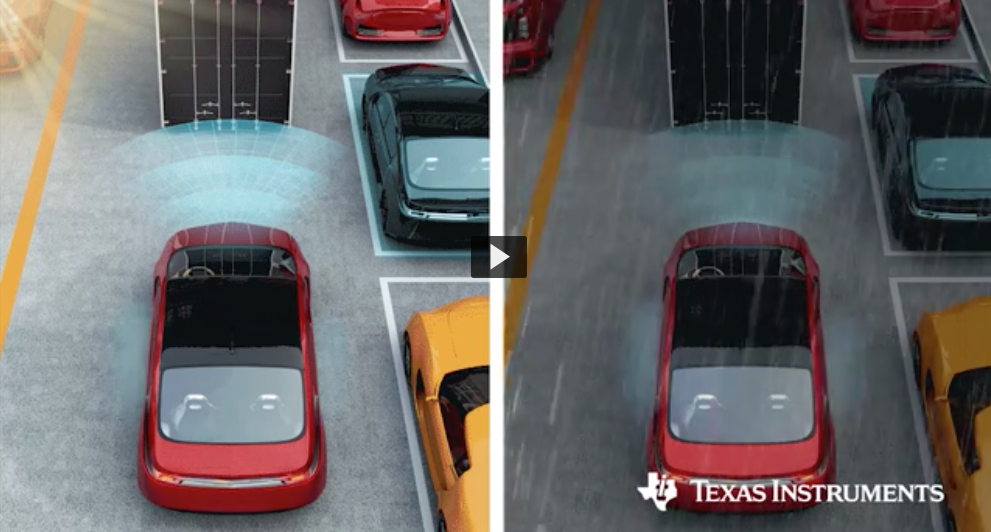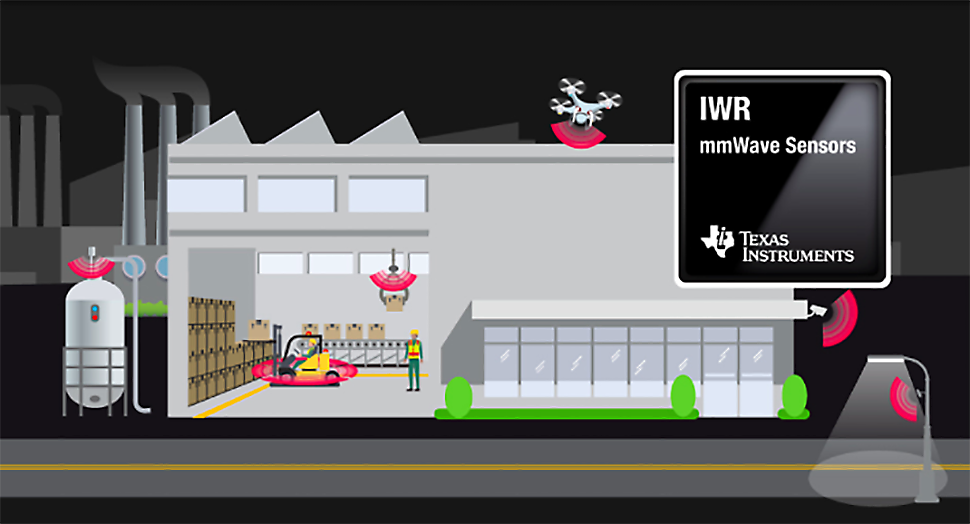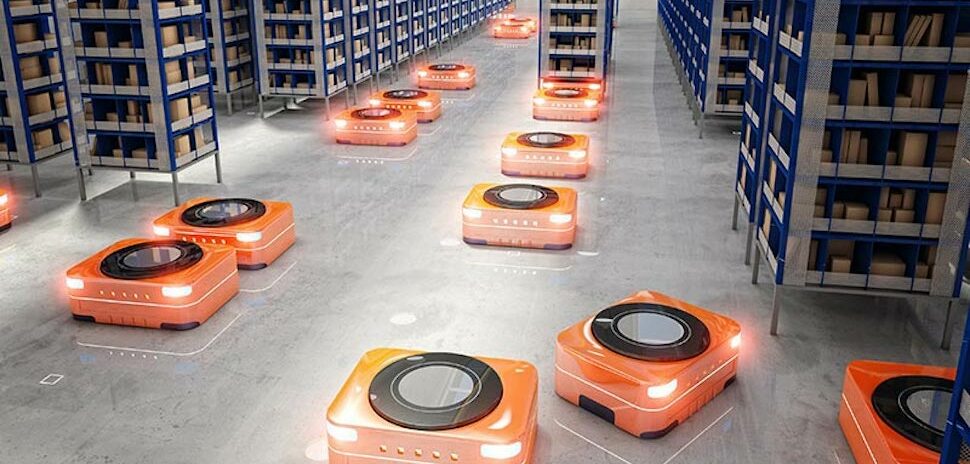Texas Instruments Inc., a large supplier of semiconductors to the automotive industry, has developed new mmWave sensor chips that it says are the most precise and smallest such sensors on the market.
Dallas-based TI said the new chips, which it began selling Tuesday, bring an unprecedented degree of precision and intelligence to a range of applications spanning the automotive, factory and building automation, and medical markets.
The new millimeter wave (mmWave) single-chip complementary metal-oxide semiconductor (CMOS) portfolio includes five devices across two families of 76- to 81-GHz sensors.

TI’s new sensor family detects range, velocity, and angle of objects in multiple markets in the industrial space, according the company’s website. [Image: TI newscenter]
The new radar chips combine the functions of many components and are configurable, Greg Delagi, a senior vice president, told Bloomberg. That means, for example, that a sensor could focus on nearby items during a low-speed parking maneuver then switch to looking out hundreds of yards when the car reached highway speed. Such a system currently would require multiple components, he said.

TI mmWave radar sensors can detect environmental conditions such as lighting, rain, dust, fog, or frost. Click the image for a one-second video clip. [Image: TI newscenter]
The chips can sense accurately through plastic, drywall, clothing, glass, and many other materials, and through environmental conditions such as lighting, rain, dust, fog, or frost.
Vehicle radar systems that stop cars from running into those ahead of them are an integral part of attempts to build self-driving vehicles. The new chips from TI, nine years in development, reduce the size of space required for sensors, Delagi told Bloomberg.
Beyond automotive, TI said its sensing technology can be used to transform existing capabilities in growing areas such as medical equipment, tank-level sensing, robotic vision, and drones.































